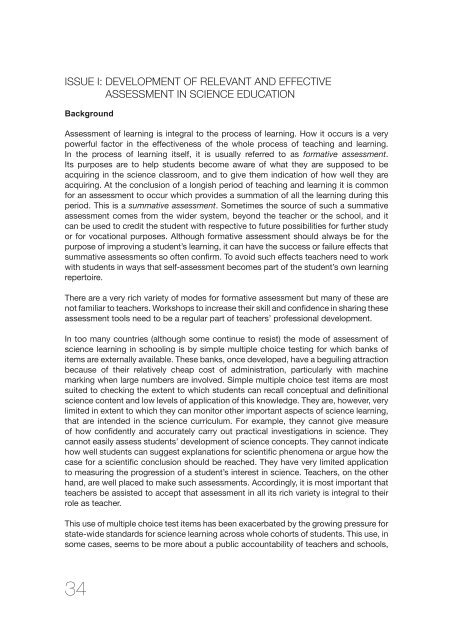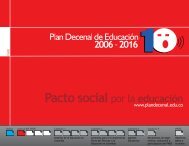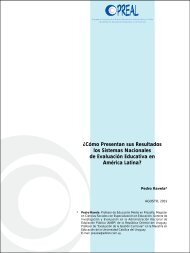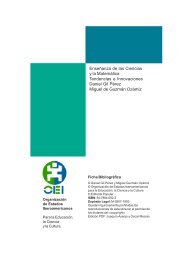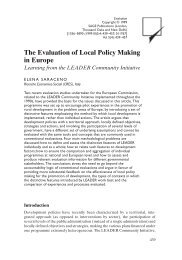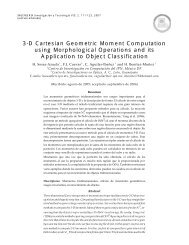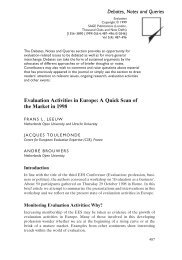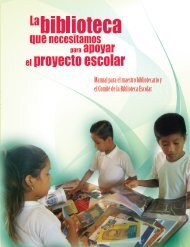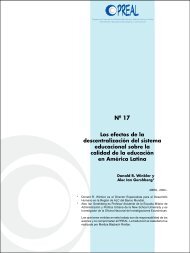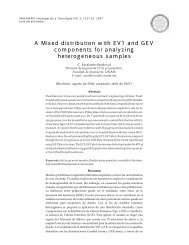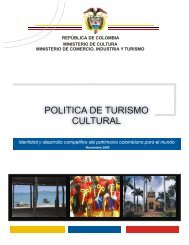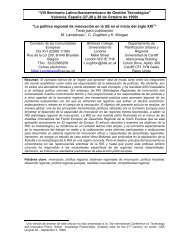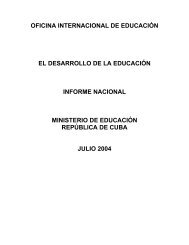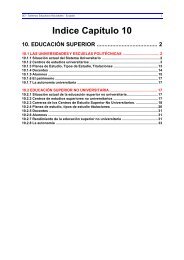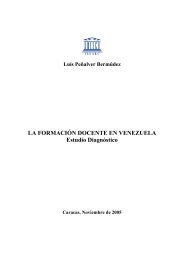Science education policy-making: eleven emerging issues; 2008 - OEI
Science education policy-making: eleven emerging issues; 2008 - OEI
Science education policy-making: eleven emerging issues; 2008 - OEI
Create successful ePaper yourself
Turn your PDF publications into a flip-book with our unique Google optimized e-Paper software.
ISSUE I: DEVELOPMENT OF RELEVANT AND EFFECTIVE<br />
ASSESSMENT IN SCIENCE EDUCATION<br />
Background<br />
Assessment of learning is integral to the process of learning. How it occurs is a very<br />
powerful factor in the effectiveness of the whole process of teaching and learning.<br />
In the process of learning itself, it is usually referred to as formative assessment.<br />
Its purposes are to help students become aware of what they are supposed to be<br />
acquiring in the science classroom, and to give them indication of how well they are<br />
acquiring. At the conclusion of a longish period of teaching and learning it is common<br />
for an assessment to occur which provides a summation of all the learning during this<br />
period. This is a summative assessment. Sometimes the source of such a summative<br />
assessment comes from the wider system, beyond the teacher or the school, and it<br />
can be used to credit the student with respective to future possibilities for further study<br />
or for vocational purposes. Although formative assessment should always be for the<br />
purpose of improving a student’s learning, it can have the success or failure effects that<br />
summative assessments so often confirm. To avoid such effects teachers need to work<br />
with students in ways that self-assessment becomes part of the student’s own learning<br />
repertoire.<br />
There are a very rich variety of modes for formative assessment but many of these are<br />
not familiar to teachers. Workshops to increase their skill and confidence in sharing these<br />
assessment tools need to be a regular part of teachers’ professional development.<br />
In too many countries (although some continue to resist) the mode of assessment of<br />
science learning in schooling is by simple multiple choice testing for which banks of<br />
items are externally available. These banks, once developed, have a beguiling attraction<br />
because of their relatively cheap cost of administration, particularly with machine<br />
marking when large numbers are involved. Simple multiple choice test items are most<br />
suited to checking the extent to which students can recall conceptual and definitional<br />
science content and low levels of application of this knowledge. They are, however, very<br />
limited in extent to which they can monitor other important aspects of science learning,<br />
that are intended in the science curriculum. For example, they cannot give measure<br />
of how confidently and accurately carry out practical investigations in science. They<br />
cannot easily assess students’ development of science concepts. They cannot indicate<br />
how well students can suggest explanations for scientific phenomena or argue how the<br />
case for a scientific conclusion should be reached. They have very limited application<br />
to measuring the progression of a student’s interest in science. Teachers, on the other<br />
hand, are well placed to make such assessments. Accordingly, it is most important that<br />
teachers be assisted to accept that assessment in all its rich variety is integral to their<br />
role as teacher.<br />
This use of multiple choice test items has been exacerbated by the growing pressure for<br />
state-wide standards for science learning across whole cohorts of students. This use, in<br />
some cases, seems to be more about a public accountability of teachers and schools,<br />
34


